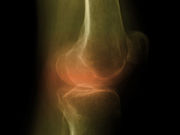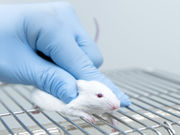Tag: Weight Loss Surgery and Bariatric
Alcohol Disorder Screening in Women Post-RYGB Inadequate
Measuring alcohol intake alone ineffective for identifying alcohol-related problems after Roux-en-Y
Prevalence of Pediatric Metabolic, Bariatric Surgery Examined
In 2005 to 2014, about 14,000 MBS procedures done in children, teens, young adults with severe obesity
Percent Weight Regain Predicts Health Risks Post-Bariatric Surgery
Based on long-term follow-up, percent regain after max weight loss tied to most health outcomes
Bariatric Sx Cuts Macrovascular Complications in Obesity, T2DM
Lower composite incidence of macrovascular events, lower incidence of coronary artery disease at 5 years
Sleeve Gastrectomy, Gastric Bypass May Be Better for Teens
Greater declines in body mass index seen at one and three years than with gastric banding
Bariatric Surgery Lowers Microvascular Disease Risk
Findings based on large study of patients with type 2 diabetes
Long-Term Risk of Anastomotic Ulceration After RYGB
Significant correlation for history of tobacco use with AU development
Bariatric Surgery Lessens Knee OA Pain More in Certain Patients
Younger patients, those without knee injury or other joint involvement see most improvement in pain
Bariatric Surgery Can Lead to Changes in Relationship Status
Increased incidence of divorce/separation in those in a relationship, and new relationship in single patients
Sleeve Gastrectomy Linked to Improved Glycemia in Mice
Sleeve gastrectomy causes improvement in muscle and hepatic insulin sensitivity














